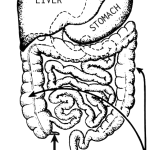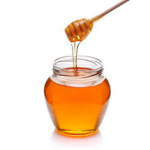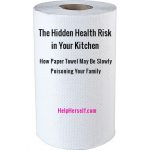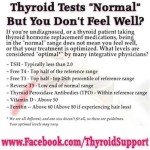Natural Supplements to Lower Cholesterol
How to lower cholesterol levels naturally
Keeping your cholesterol within healthy ranges is one of the single most important things you can do to maintain good health, and there are natural cholesterol-lowering supplements that may help with that. Read on to learn more…
Cardiovasculart disease is the number one cause of death for both men and women world-wide. High cholesterol levels contribute to the development and/or progression of almost every cardiovascular condition including hardening of the arteries, narrowing of the arteries, stroke, torn aorta, heart attack, sudden cardiac arrest, and the list goes on. High levels of LDL cholesterol in your blood drastically increases your chance of heart attack and stroke, so you want to do as much as you can to keep your cholesterol levels within the optimal range.
The best thing you can ever do for yourself is to protect your heart, since cardiovascular issues are the number one killer. So you need to make it your priority to watch and control your cholesterol, and do what is necessary to lower your cholesterol if your numbers are outside of optimal range.
This is something that needs to be taken seriously by adults of all ages. Its not just a concern for people of middle age or older. Plaque begins to accumulate in the arteries as early as childhood. What you eat throughout your entire life . including in your teens, 20s, 30s, and 40s will have an impact on your arterial health, and on your heart sooner or later. For some, plaque caused by high cholesterol levels can have serious consequences as early as in their 20s, but certainly with each additional decade, the risk of suffering a serious cardiovascular event (heart attack, stroke, or other related disease) goes up. Unfortunately, many people do not appreciate the seriousness of this until its too late. By that point they’re willing to do anything to get their health back, but that ship has sailed. When they had the opportunity to make the right diet and lifestyle choices, they failed to take it seriously and now they are suffering the consequences.
Following a heart smart diet is important at any age to prevent unhealthy cholesterol levels which can lead to plaque and clogged and hardened arteries. Its also a good idea as a preventative measure to take natural cholesterol lowering supplements if your cholesterol levels are less than optimal or if you know your diet isn’t quite as good as it should be. A list of cholesterol lowering natural supplements can be found further in this post.
If you are diagnosed with high cholesterol, your doctor may prescribe statin drugs, medicine that’s used to lower LDL cholesterol. However, statin drugs come with side effects and risks – the FDA requires warnings of these risks on drug labels: possible liver damage; memory loss, forgetfulness, or confusion; muscle damage, which can manifest as muscle weakness or fatigue; and raised levels of blood sugar and which can lead to diabetes. If your cholesterol is elevated you may have no choice to take statin drugs, but natural cholesterol lowering supplements are a good choice if you are not at that point yet and are taking a preventative approach. They may also be taken in conjunction with statin drugs, under a doctors supervision, to minimize the dosage of statin required.
Check with your doctor before taking any cholesterol lowering supplements to ensure it doesn’t interact with any other medications you may taking.
Your doctor may also suggest changes to your diet and your exercise routine. Dietary changes could include adding foods that are particularly good for lowering cholesterol.
Types of Cholesterol: LDL (BAD) vs HDL (GOOD)
Not all cholesterol is bad. There are 2 types of cholesterol, LDL, which is known as “bad” cholesterol, and HDL – “good” cholesterol. High levels of LDL cholesterol in your blood increases your chance of heart attack and stroke, so you want to do as much as you can to keep your cholesterol levels healthy.
There are two kinds of cholesterol:
- low-density lipoprotein (LDL), also called “bad” cholesterol
- high-density lipoprotein (HDL), also called “good” cholesterol
You want to have low levels of LDL and higher levels of HDL. The recommended cholesterol levels are:
- Total cholesterol: less than 200 milligrams per deciliter (mg/dL)
- LDL cholesterol: less than 100 mg/dL
- HDL cholesterol: 50 mg/dL or higher
You could be at risk for high LDL cholesterol if you’re overweight or don’t get enough exercise. If you eat an unhealthy diet with a lot of saturated fat or trans fats., sugar, or carbohydrates, you may also be at risk. You can also inherit a tendency for high cholesterol.
Your liver makes cholesterol. You can also get it from certain foods that contain it — but not as much as from foods that contain saturated and trans fats. These types of fat cause your liver to produce extra cholesterol.
But there are foods — and supplements derived from foods — that can lower your cholesterol, too.
Medications might be necessarySometimes, despite making healthy lifestyle choices and taking supplements and using other cholesterol-lowering products, you still need help lowering your cholesterol levels. If your doctor prescribes medication to reduce your cholesterol, take it as directed while continuing to focus on a healthy lifestyle.
Natural Cholesterol Reducers
Niacin
This B vitamin, taken in very large doses (1 to 3 grams a day), is actually a drug and is sold by prescription as well as over the counter (OTC). It lowers LDL (“bad”) cholesterol by up to 30 percent, but unlike statins, it also substantially boosts HDL (“good”) cholesterol and reduces triglycerides. A common side effect is flushing; in rare cases, it can cause liver damage. The extended-release versions reduce the flushing, but OTC products may increase the risk of liver damage. Recommended primarily for people with low HDL and/or elevated triglycerides. Use under medical supervision.
CoQ10
This powerful antioxidant benefits heart health by protecting LDL cholesterol from oxidation and by re-energizing the mitochondria in the heart cells, which is where energy metabolism occurs. CoQ10 may also help lower blood pressure.
Sterols or Stanols
These plant compounds interfere with absorption of dietary cholesterol. Two daily grams lowers LDL (“bad”) cholesterol by 9 to 20 percent. Government cholesterol guidelines and the American Heart Association recommend foods fortified with sterols/stanols. There are also supplements, which vary in composition and dosage. The Food and Drug Administration (FDA) allows food and supplement labels to claim they reduce the heart disease risks if they supply at least 400 milligrams of sterols per serving/dose, for a daily total of 800 milligrams.
Turmeric/ Curcumin
Thanks to the presence of a powerful compound called curcumin, turmeric has been shown to reduce levels of total and LDL cholesterol in the blood.
Red Yeast Rice Extract (Risk Warning)
Another popular cholesterol-lowering supplement is red yeast rice. There is some evidence that red yeast rice can help lower your LDL cholesterol and it has a reputation for being quit effective. However, the Food and Drug Administration has warned that red yeast rice products could contain a naturally occurring compound found in the prescription medication known as lovastatin. This is potentially dangerous because there’s no way to know how much lovastatin might be in a particular natural supplement product. Therefore the effect of red rice yeats supplements may be unpredictable. The amount of compound can vary greatly and other substances with unknown effects are present. Brands may have dramatically different levels of effectiveness. If you take it, have your blood tested regularly by your doctor to make sure it is working and not having adverse effects.
Soluble Fiber Supplements
Produce and grains rich in soluble fiber are recommended for controlling cholesterol. One such fiber is psyllium, sold as a laxative and fiber supplement, which can lower LDL cholesterol 5 to 15 percent and has other heart-healthy effects but may cause gas, stomach pain, diarrhea, constipation or nausea; and can reduce absorption of some nutrients, such as iron. Get other soluble fibers from food – beta glucan which is found in oats and barley also lowers LDL cholesterol. Fiber-rich oats and barley can have heart-health benefits, but you need 3 to 6 daily grams for significant effect.
Fish Oil Supplements
The cardiovascular benefits of omega-3 supplements are questioned by some experts, but one thing is clear: they do not lower cholesterol. In fact, they may raise both LDL and HDL slightly. They do help lower triglycerides, though it takes very high doses. Many experts say not recommended for cholesterol control.
Garlic
For decades garlic has been one of the best-known supplements for reducing cholesterol, but a more recent study by Standford University School of Medicine has shown that it might not be effective after all. Earlier studies on garlic produced conflicting results, but some indicated that garlic might lower cholesterol. More recent studies have yielded inconsistent results, and the 2007 Stanford Study outright demonstrates a lack of effectiveness. There are many types of supplements, with different amounts of garlic components. In the well-designed study from Stanford University no benefit was found from two popular supplements or raw garlic. More recently, two analyses concluded that clinical trials have not shown consistent or significant improvements in cholesterol, while a Chinese review from 2012 found only very modest reductions. Interestingly, Dr. Andrew Weil continues to recommend garlic for cholesterol reduction on his website, and makes no mention of the mounting research that overturns the previous belief in the cholesterol lowering effects of garlic. This is not the first time I have found the advice of Dr Weil to be questionable. I have seen numerous instances where he claims that something I have personally experienced to be very effective has no merit, and now he seems to be completely uninformed and out of date with regards to the effectiveness of garlic for lowering cholesterol – despite several studies, including this important study at Stanford, indicating the ineffectiveness of garlic, Weil continues to purport its effectiveness. This is just another example of why I increasingly place very little weight in any of his recommendations and I always cross reference and double check any claims he makes for or against any particular natural treatment.
Artichoke Leaf Extract
Some early research suggested cholesterol-reducing effects. But a 2009 review by the Cochrane Collaboration looked at three clinical trials and concluded that the extract had only a small effect on lowering cholesterol and that better research is needed.
Apple Cider Vinegar
– As reported by Dr. Axe, an animal study out of Iran showed that supplementing rats with ACV was able to reduce bad LDL cholesterol while also increasing beneficial HDL cholesterol. However, contrary to popular misconception, ACV will not clear arteries of plaque. But by controlling cholesterol it can prevent the formation of plaque, so it is a preventative measure against plaque, but not a cure for it if it is already there .
Spirulina
Protects “Bad” LDL Cholesterol From Oxidation: Fatty structures in your body are susceptible to oxidative damage. This is known as lipid peroxidation, a key driver of many serious diseases (13, 14).For example, one of the key steps in the development of heart disease is the oxidation of “bad” LDL cholesterol (15).Interestingly, the antioxidants in spirulina appear to be particularly effective at reducing lipid peroxidation in both humans and animals (16, 17). In a study in 37 people with type 2 diabetes, 8 grams of spirulina per day significantly reduced markers of oxidative damage. It also increased levels of antioxidant enzymes in the blood (18).Fatty structures in your body can become oxidized, driving the progression of many diseases. The antioxidants in spirulina can help prevent this.
In one animal study,24 spirulina increased synthesis and release of nitric oxide and inhibited vasoconstriction in rats fed a fructose-rich diet. In another, spirulina protected hamsters from developing atherosclerosis.25Two other studies showed potential in spirulina for stroke prevention. A study in the Journal of Agricultural and Food Chemistry,27 and another in the British Journal of Nutrition28 showed that spirulina reduces platelet aggregation, which plays an important role in vascular diseases by reducing your risk for thromboembolism. Other research29 has shown a combination of spirulina, blueberries and spinach led to “a significant reduction in the volume of infarction in the cerebral cortex and an increase in post-stroke locomotor activity” in mice.
Doctors consider Spirulina to be safe in general, especially in light of its long history as a food. But Spirulina may become contaminated with toxic metals, harmful bacteria and microcystins — toxins produced from some algae —if it is grown in unsafe conditions. Contaminated Spirulina can cause liver damage, nausea, vomiting, thirst, weakness, rapid heartbeat, shock and even death. Contaminated Spirulina may be especially dangerous for children. The NIH recommends researching the source of Spirulina in supplements to ensure they are grown in safe conditions and tested for toxins.
Spirulina may also interfere with drugs that slow blood clotting, including blood thinners such as warfarin as well as nonsteroidal anti-inflammatory (NSAIDS) pain medications. Combining Spirulina with herbal supplements that slow blood clotting may increase a person’s risk of bleeding. Such herbs include cloves, danshen, garlic, ginger, ginkgo, ginseng and turmeric, according to the NIH.
Vitamin D
There is conflicting information about the link between cholesterol and vitamin D. Population studies show that people with lower vitamin D levels are more likely to have high cholesterol, although this does not prove a “cause and effect” relationship. While Vitamin D has been shown to boost cardiovascular function, when it comes to lowering cholesterol levels, specifically, The National Institutes of Health states that there is insufficient evidence to determine any relationship between your vitamin D intake and your cholesterol levels. One 2012 study found that vitamin D supplements have no cholesterol-lowering effects, at least in the short term. In fact, the researchers found that the supplements were actually associated with an increase in LDL.
However, given that there is a link between low vitamin D levels of high LDL cholesterol, it seems at least plausible to me that, while vitamin D may not be a successful treatment for high cholesterol, its possible that it could be used prevetatively. This is, of course, merely a hypothesis which would need to be tested.
2014 research found that taking calcium and vitamin D supplements together improved cholesterol levels in postmenopausal overweight or obese women. So the data is conflicting, indeed.
With the other benefits that vitamin D provides, there is still good reason to include vitamin D as part of your healthy lifestyle, and if it turns out that it has a preventative effect on cholesterol levels, so much the better.
The more we learn about vitamin D, the more we recognize its benefits and necessity in a healthy lifestyle. Vitamin D has been shown to prevent or treat: Dental and oral problems, psoriasis, autism, prevent certain types of cancer, kidney disease, clinical depression, autoimmune diseases, asthma. Vitamin D also boosts lung and muscle function as well as cardiovascular function, helps the body to fight infections, and contributes to bone health.
Warning: Vitamin D may affect blood sugar levels, so those with diabetes or hypoglycemia should use caution. A condition called hypercalcemia can result from too much vitamin D intake. Hypercalcemia occurs when there is too much calcium in a person’s bloodstream. Constipation, kidney stones, and stomach cramps can all be symptoms of hypercalcemia.
The Bottom Line on Cholesterol Lowering Supplements
If you have high cholesterol and try one of these supplements, tell your doctor, so he or she can monitor effects. If you’re already taking a statin, a few of these may help you stay on a lower dose of the drug. Don’t assume that such supplements are safe because they are “natural” and available without a prescription. If they can affect blood cholesterol (and even if they can’t), they can also have other effects in the body. Some can interact with medications, including cholesterol-lowering medication. Optimal doses are usually not known.
Your doctor may also suggest changes to your diet and your exercise routine. Dietary changes could include adding foods that are particularly good for lowering cholesterol.
| Supplement | Potential Benefit | Side effects and drug interactions |
|---|---|---|
| May reduce total cholesterol and (LDL, cholesterol | May cause gas or an allergic reaction, especially in those who are allergic to ragweed | |
| May reduce total cholesterol and LDL cholesterol | Generally well-tolerated; might cause an allergic reaction | |
| Blond psyllium (found in seed husk and products such as Metamucil) | May reduce total cholesterol and LDL cholesterol | May cause gas, stomach pain, diarrhea, constipation or nausea; can reduce absorption of some nutrients, such as iron |
| Fish oil (found as a liquid oil and in oil-filled capsules) | May reduce triglycerides | May cause a fishy aftertaste, bad breath, gas, nausea, vomiting or diarrhea; may interact with some blood-thinning medications, such as warfarin (Coumadin, Jantoven) |
| Flaxseed, ground | May reduce LDL cholesterol | May cause gas, bloating or diarrhea; may interact with some blood-thinning medications, such as aspirin, clopidogrel (Plavix) and warfarin (Coumadin, Jantoven) |
| Green tea or green tea extract | May lower LDL cholesterol and triglycerides | May cause nausea, vomiting, gas or diarrhea; may interact with blood-thinning medications, such as warfarin (Coumadin, Jantoven) |
| Niacin | May lower LDL cholesterol and improve HDL | May cause headache, nausea, vomiting, itching and flushing, which are more common at prescription levels |
| Oat bran (found in oatmeal and whole oats) | May reduce total cholesterol and LDL cholesterol | May cause gas or bloating |
| Plant stanols, lecithin-emulsified (found in some products, such as Minute Maid Heart Wise orange juice and Rice Dream Heartwise Rice Drink) | May reduce total cholesterol and LDL cholesterol | May cause diarrhea |
| Plant sterols (found in oral supplements and some margarines, such as Promise Activ) | May reduce total cholesterol and LDL cholesterol | May cause nausea, indigestion, gas, diarrhea or constipation |
| Soy protein (found in soy milk, tofu, textured soy protein) as a substitute for other high-fat protein sources | May reduce LDL | May cause constipation, diarrhea, bloating, nausea and allergic reactions |







Leave a Reply